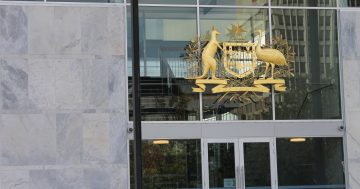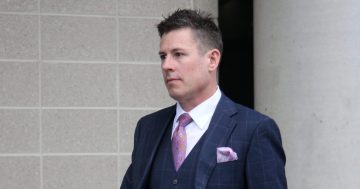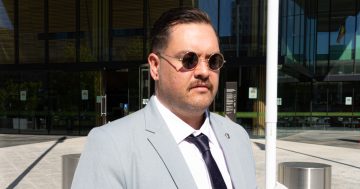
Over the last few weeks the hysterical media has conducted a trial by media of a young man from ADFA accused of raping a fellow cadet. The lurid details of their encounter were splashed about the pages for weeks. He was named in the articles, and his picture splashed all over the place.
It now appears that according to a unanimous jury verdict, achieved in an hour no less, that he was not guilty of the charge.
The woman who brought the charge has been found to be telling less than the truth, whether this be by malice, forgetfulness, fancifulness, or whatever. Only her close colleagues know her identity, although in a close community like ADFA it would spread like wildfire.
The whole world knows the face, name and age of the accused. These stories have appeared of course in online versions of the newspapers, thus making his trial by media worldwide. But the name of the accuser has not been published. She has been found to have given false evidence. Is she being charged with perjury or making false reports to the police? Who would know? Is this justice?
This is an appalling miscarriage of justice. This young bloke has had his career all but ruined. An acquittal by the courts doesn’t mean that everyone will believe in his innocence. His service career, if not ended already will always be tainted by the accusation of rape.
In the same paper, there was a story about some guy from Sydney coming to Canberra via an online dating experience, meeting up with a young lady and allegedly raping her using sleeping tablets. Again, the lurid details are available for the voyeurs to slather over. Again, his name was splashed across the story. Where did the press get these details? The allegations that sleeping pills, condoms and Viagra were found in his hotel room, that he had a sexual dysfunction are too detailed for an X-rayed eyed member of the fourth estate to discern by looking into the tea leaves. This information is part of the prosecution’s case and should be for the ears of the jury not for the voyeurs out there who will find this guy guilty regardless. Now if he is found guilty, the court will deal with it and publication of his name is fine. But where is the justice before the court makes its decision?
Trial by media is an abhorrent one-way insidious misuse of the power of the press. It is made more insidious by the acquiescence of the courts in not suppressing the name of the defendant in these matters. The courts are supposed to be the protectors of our rights and in these instances, they let us all down.
And while I’m at it, who let the press know of the charge. It is all too common that the world is informed of a charge being laid before a defendant fronts a court, by which time, I guess, it is too late for a suppression order. Although, it would prevent the ongoing denial of the right to be judged guilty or not before publication of personal details.
The police give this information to the press as soon as a person is charged, and often (and I know this from personal experience) before the charge is actually laid. TV scenes of raids come about from police tip-offs. The guardians of our safety, privacy and liberty abuse this “Special Office of the Constable” and release details so that the public will be on their side in a challenge before the courts. Disgusting.
Now you will say that the public has the right to know about these insidious crimes and the lurid details (for the voyeurs among us). I agree about the generality of it but what about the preservation of a right to defend oneself before being found guilty in the court of public opinion.
How many of us have condemned Cardinal Pell to the fires of hell for child abuse crimes even though he hasn’t fronted a court yet? Now I’m no fan of Cardinal Pell. I don’t like his manner and I don’t like his power-hungry ambitions. But, in a world of constant stories of hideous child abuse by clergies of many persuasions, all that needs to happen for a person to be found guilty in the court of public opinion and thus have their lives wrecked is an accusation. How about we wait and see what the courts deliver?
If the media must publish the names of the accused, how about publishing the names of the accuser too? In the cases of an innocent person being charged the false accuser will be outed.
The downside of this is that where a person is guilty the accuser is outed and it exacerbates the pain of the accuser and could stop others from coming forward.
The solution is not to name anyone until the trial is over. Then the details can emerge, the wrongdoer outed and we can all get on with it with no damage to the innocent party.
If this had been the case, the young guy form ADFA would have been able to resume his career and his life free of the cloud of guilt by media.
The media has a lot to answer for.





















